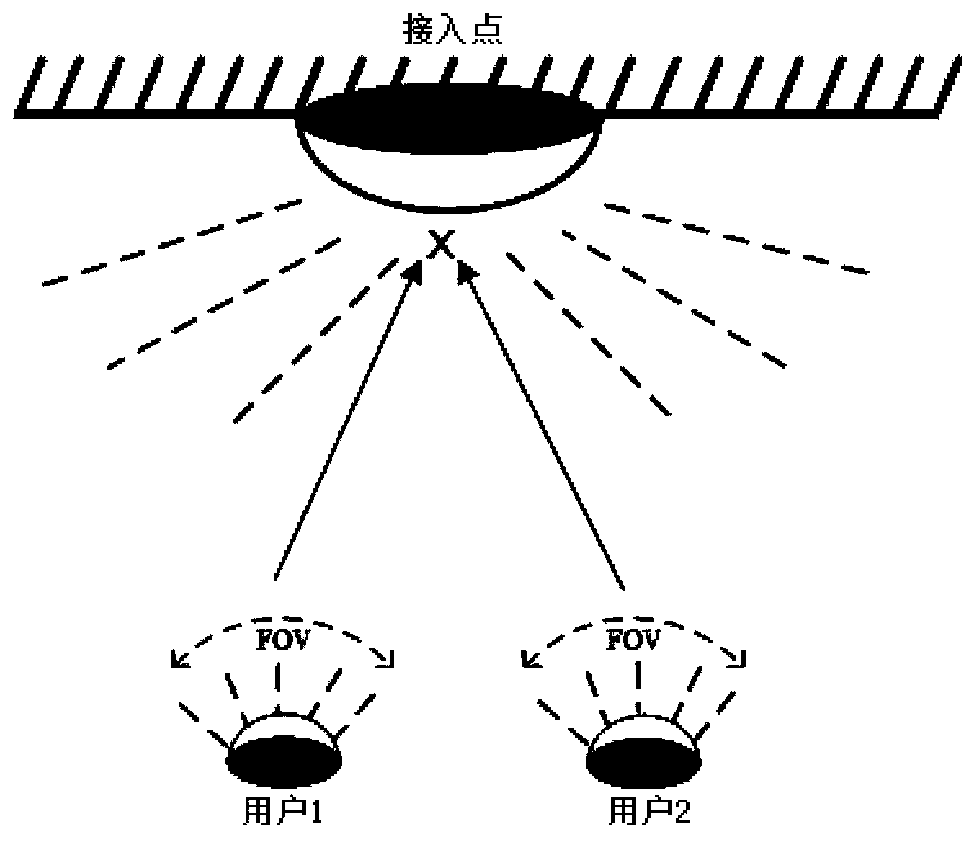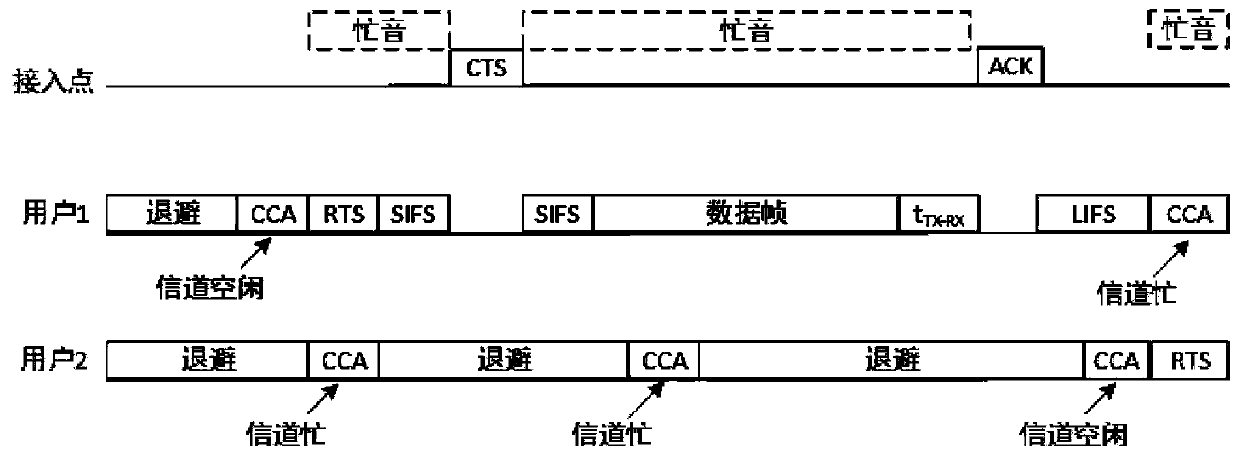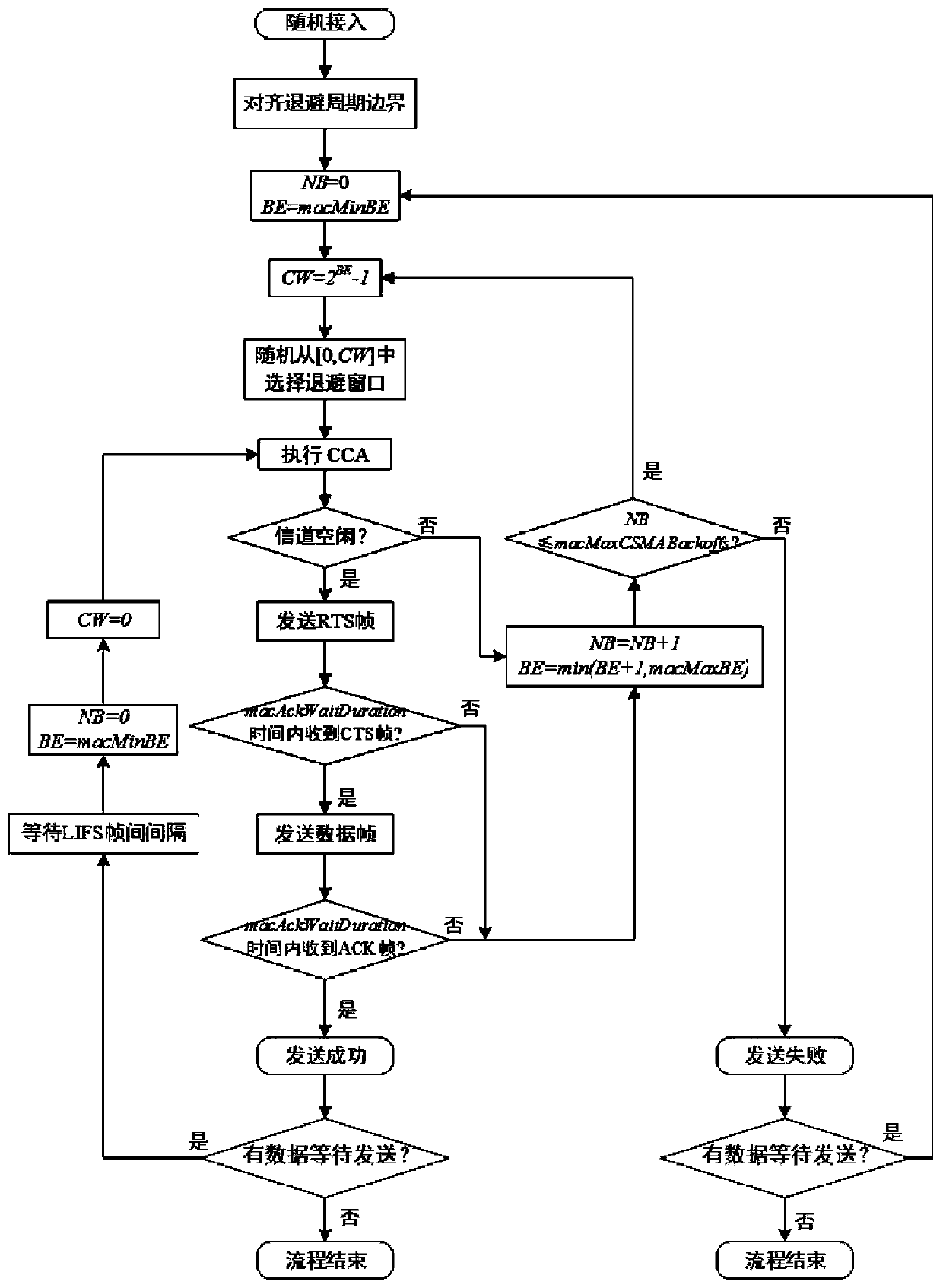Visible light full-duplex continuous transmission random access method based on channel reservation mechanism
A channel reservation and random access technology, applied in the field of visible light communication, can solve problems such as hidden nodes and performance cannot be eliminated
- Summary
- Abstract
- Description
- Claims
- Application Information
AI Technical Summary
Problems solved by technology
Method used
Image
Examples
Embodiment 1
[0043] Such as Figure 1~3 As shown, a visible light full-duplex continuous transmission random access method based on the channel reservation mechanism includes the following specific steps:
[0044] S1: The user has data waiting to be sent, and performs random backoff;
[0045] S2: The backoff time is over, and the user executes CCA to determine whether the current channel is idle;
[0046] S3: If the CCA detects that the current channel is idle, the user does not directly send a data frame, but first sends an RTS frame to reserve the channel;
[0047] S4: When a full-duplex visible light access point receives an RTS frame, it needs to send a busy tone to eliminate hidden nodes; that is, if other users perform CCA at the current moment, they will receive the busy tone signal sent by the access point and consider the current channel state If it is busy, backoff needs to be performed again to avoid conflicts;
[0048] S5: The user uses Short Interframe Space (SIFS) time to ...
PUM
 Login to View More
Login to View More Abstract
Description
Claims
Application Information
 Login to View More
Login to View More - R&D
- Intellectual Property
- Life Sciences
- Materials
- Tech Scout
- Unparalleled Data Quality
- Higher Quality Content
- 60% Fewer Hallucinations
Browse by: Latest US Patents, China's latest patents, Technical Efficacy Thesaurus, Application Domain, Technology Topic, Popular Technical Reports.
© 2025 PatSnap. All rights reserved.Legal|Privacy policy|Modern Slavery Act Transparency Statement|Sitemap|About US| Contact US: help@patsnap.com



